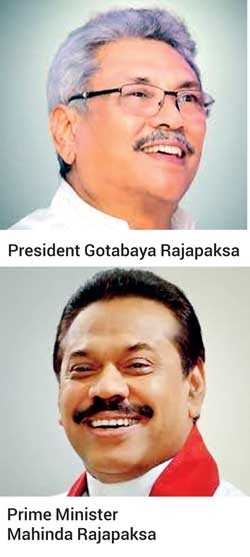Sunday Feb 15, 2026
Sunday Feb 15, 2026
Monday, 2 December 2019 00:00 - - {{hitsCtrl.values.hits}}
For two and a half decades (since 1995), the Sri Lankan trading community has been constantly requesting that all Governments act fast to reform the border control agency of Customs if the country was to progress as an exporting nation and become an international maritime hub.
Attempts have been made, promises have been given, but only very marginal changes have taken place during the last ten years. Since the end of the war, Sri Lanka has not really progressed in its Logistics Performance Index (LPI) due to the lack of reforms in many areas relating to supply chain-related services. On the contrary, our neighbour India has jumped over 50 places over the last few years, by border control reforms mainly targeting Customs. 
Sri Lanka has succeeded in partially automating the processes during the last decade. However, a focused effort has not been there to totally reform the legal impediments to overcoming the challenges in fitting into the technological and processes re-structuring. This creates a huge loophole for officers, who are not supportive of the reform agenda and in a position to dictate terms to the trade, to cite legal barriers to introducing simpler and transparent mechanisms that could more speedily support exports and imports.
With the funding of the international community, a national trade facilitation committee, along with the industry and public officials drafted a new Customs Act in the 2015/2016 period to replace the existing Customs Ordinance which is over 200 years old. However, when the previous Government tried to implement the new Act, the Customs unions continued to oppose it, and then proposed an alternative Act to the then-ministers. However, due to reasons unknown, the new Customs Act has never yet become law. 
A country cannot compete in the global environment and expand its exports without adjusting the laws to suit modern-day consumer requirements and technological changes to achieve speed and agility. The history of the Customs reforms in Sri Lanka is ad hoc, trying to solve day-to-day problems rather than resolving big picture issues to make our country an investment destination for logistics and exports as all Governments have envisaged.
There is a strong perception that the new President Gotabaya Rajapaksa is looked upon as a decisive and a strong leader who will use his authority to make things happen, rather than using delay tactics to avoid achieving the goals. The Finance Minister himself, as a former President and a former Finance Minister, knows the challenges the trade has faced for decades due to the inefficiencies of the Customs Department and purposeful sabotage by certain individuals in relation to facilitating revenue and international trade.
I would call it a litmus test for the President and the new Government to get the new Customs Act passed in Parliament by 31 March 2020 so that Sri Lanka can truly walk towards a reformed border control regime that will help our aspirations of becoming a global hub for trade logistics and maritime. This reform has been the biggest obstacle to getting the supply chain and logistics industry into a competitive platform, as the Customs accounts for nearly 50% of the trade facilitation requirements. If this institution is not legally reformed, how can one expect the other 35 agencies to be reformed to support the country’s aspirations?
Mr. President and Prime Minister, the expectations of the trade are very high. Some of us, both from the private and the public sector, have voluntarily given time and effort to get this reform done for years and years in the interest of the country. We now seek your strong intervention to execute it without further delaying the country’s requirements.
Writer is the Shippers’ Academy Colombo CEO and Chairman of the Logistics Advisory Committee, National Export Strategy to the Export Development Board Sri Lanka.